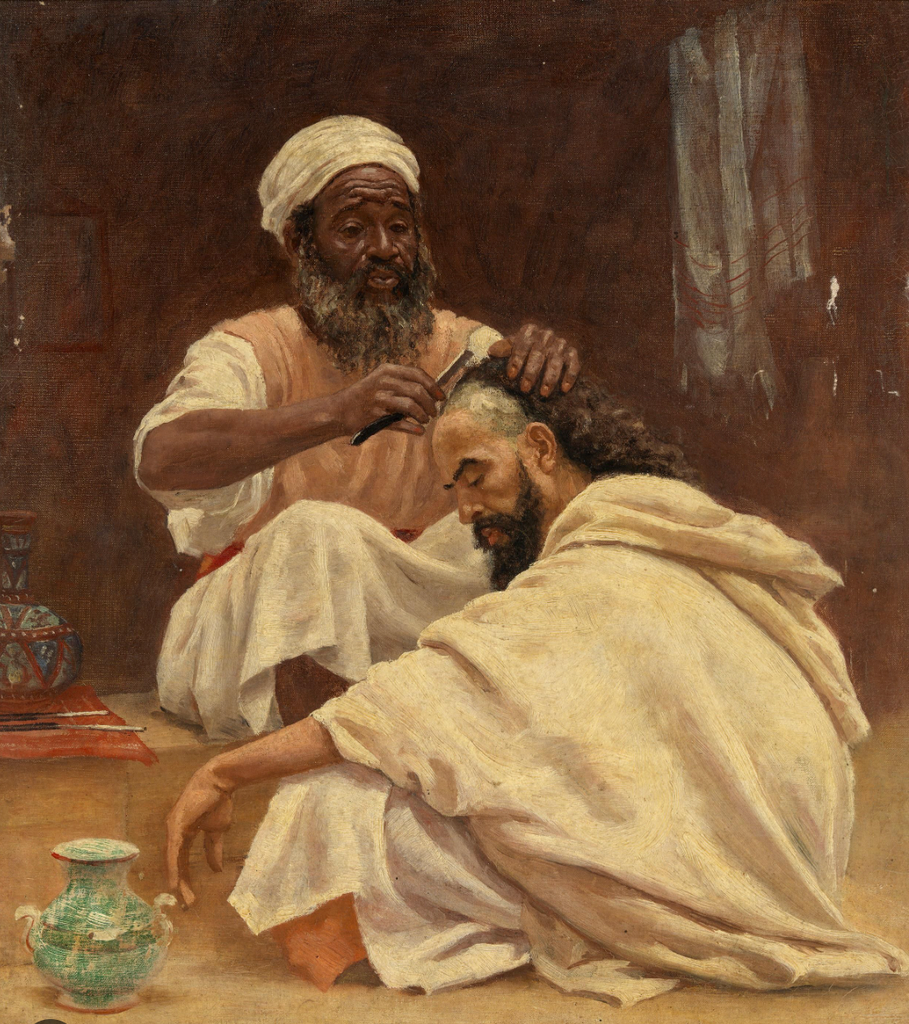The History of Barbering 1.0

Barbering is one of the oldest documented professions. Understanding its evolution can help provide a new appreciation for the prominent role it has achieved in different cultures throughout the ages. Barbering has a wealthy history that goes back millennia. From metal shears to electric to lithium battery operated cordless clippers in modern times but we can go back even further where sharped flint, oyster shells, and even bone was used to shave and get that fresh cut. Technology has come a long way. Many primitive cultures believed that both good and bad spirits entered through the hair and in order to get rid of the bad spirits the barber had to cut the hair. Those belief systems elevated tribal barbers to positions of importance, such as medicine men, shamans, or priests. The Egyptians are credited with being the first people to cultivate beauty in an extravagant fashion. According to Milady Standard Barbering excavations from tombs have revealed such relics as combs, brushes, mirrors, cosmetics, scissors, and razors made of tempered copper and bronze. High-ranking men and women of Egypt had their heads shaved for comfort when wearing wigs and for the prevention of parasitic infestations. Every third day, barbers would shave the priests' entire bodies to ensure their purity before entering the temple. The work of the barber Meryma'at (mare-a-mott) was held in very high esteem. Several Biblical passages give insight into the works of the barber. It was in Greece during its golden age (500-300 BC) that barbering became a highly developed art. Well-trimmed beards were status symbols. Greek men had their beards trimmed, curled, and scented on a regular basis. Barbershops became the gathering places for exchanging sporting, social, and political news, while barbers themselves rose in prominence to become leading citizens within the social structure.
The word barber is derived from the Latin word barba, meaning "beard." Another word derived from Latin, tonsorial (TON-SORE-ee-ahl) (derived from tondere, meaning "to shear") means the cutting, clipping, or trimming of hair with shears or a razor - barbers are sometimes referred to as tonsorial artists.

The privilege of haircutting was reserved for the barber, priest, medicine men, or spiritual leader of the tribe. According to the Greek philosopher and mathematician Pythagoras, the hair was the source of the brain's inspiration, and cutting it decreased an individual's intellectual capacity. Barbering has evolved over the centuries and will continue to be a staple in our communities. As technology advances and trends emerge it will be interesting to see what the future of the guild looks like.

Comments on this post (2)
Hey Dessiree, thank you for your feedback. Pardon my delay on the response. I’ve been really busy. What type of mentoring are you seeking?
— Anonymous
you are awesome family can you be my mentor, i am a HECKSTALL like you
— dessiree pearson